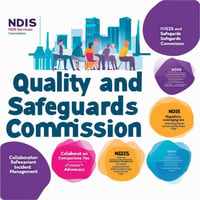Service agreements sit at the heart of high-quality, person-centred supports. They spell out...
Managing Staff Burnout in High-Demand Environments: A Guide for Leaders
In high-demand industries, such as healthcare, IT, and customer service, burnout is a real and pressing issue that impacts employee well-being, productivity, and overall job satisfaction. Organisations in these fields need to take proactive steps to ensure their staff is supported, energised, and able to thrive despite the pressures. Here, we explore effective strategies for managing and preventing staff burnout in demanding environments.
1. Recognise the Signs Early
Burnout often creeps up gradually, manifesting as emotional, mental, and physical exhaustion. Leaders should actively look out for signs such as:
- Decreased enthusiasm or motivation
- Reduced productivity or efficiency
- Increased absenteeism or frequent sick days
- Noticeable detachment or cynicism
- Signs of anxiety, irritability, or exhaustion
Training managers and team leaders to spot these signs early and address them with empathy can help in identifying burnout before it becomes critical.
2. Promote a Healthy Work-Life Balance
High-stress roles can create an “always on” mindset, especially when there’s an unspoken expectation to be available beyond regular hours. However, balancing work and personal life is crucial in preventing burnout. Leaders can help by:
- Encouraging employees to log off after hours and respect personal time
- Offering flexible work schedules or remote work options where possible
- Setting realistic goals and deadlines to prevent overworking
- Recognising and rewarding productivity, not just long hours
Organisations that embrace work-life balance create a healthier, more sustainable work culture that reduces burnout and keeps employees engaged.
3. Foster Open Communication
Transparent communication allows employees to express challenges without fear of repercussions. Establish a culture where staff can openly discuss workload concerns or personal pressures. Encourage open dialogue by:
- Holding regular check-ins with employees
- Providing anonymous feedback channels for honest input
- Actively listening and acting on employee concerns
- Offering regular and constructive feedback
When employees feel they can communicate openly, they’re more likely to reach out before burnout takes a toll on their health and performance.
4. Offer Mental Health Support
 Mental health support can be a powerful tool in reducing burnout. Consider investing in resources like:
Mental health support can be a powerful tool in reducing burnout. Consider investing in resources like:
- Employee Assistance Programs (EAPs) with access to counselling and support
- On-site or virtual wellness workshops on topics like stress management, mindfulness, and resilience
- Encouraging regular breaks and mental health days without stigma
Creating an environment where mental health is prioritized reduces the stigma and allows employees to access help as soon as they need it.
5. Encourage Time Off and Proper Rest
High-demand environments often make employees feel that taking time off is a setback, but this mindset is harmful in the long run. Rest is essential for productivity, creativity, and overall well-being. Encourage team members to take their allotted leave, and ensure that:
- There’s coverage during absences to avoid work piling up for returning staff
- Managers lead by example by taking regular breaks and time off
- Employees feel supported in using their leave without fear of reprisal
6. Empower Staff with Autonomy
A lack of control over one’s work can heighten burnout. Granting employees more autonomy and decision-making power can improve their sense of control and job satisfaction. Strategies to consider include:
- Allowing flexibility in how they complete tasks
- Involving them in goal-setting and planning processes
- Recognising their expertise and trusting their judgment
- Providing opportunities for upskilling, which empowers them to handle challenges with confidence
When employees have a degree of control, they’re better equipped to manage their workload in ways that suit them best.
7. Implement Team-Building and Support Systems
High-demand roles can create silos, where employees feel isolated in their workload. Building strong teams fosters a sense of camaraderie and mutual support. To encourage teamwork:
- Organise regular team-building exercises and offsite gatherings
- Promote a buddy or mentorship system for new hires
- Encourage collaboration rather than competition
- Recognise team achievements to build collective morale
Employees who feel supported by their peers are better equipped to handle stress and enjoy coming to work.
8. Provide Clear Goals and Expectations
Uncertainty and constantly shifting priorities are major contributors to burnout. Establishing clear expectations and goals allows employees to feel more grounded in their roles. Help reduce ambiguity by:
- Setting achievable and measurable targets
- Providing clear, written goals and responsibilities
- Communicating any organisational changes early and transparently
- Breaking down large projects into smaller, manageable tasks
Employees thrive when they understand their roles and how their work contributes to the organisation's success.
9. Regularly Evaluate Workloads
Unchecked workloads can quickly lead to burnout, even for the most dedicated employees. Assess workload distribution by:
- Conducting regular assessments of team and individual workloads
- Rotating responsibilities to avoid repetitive tasks
- Re-evaluating project deadlines and workloads periodically
Redistributing tasks and setting realistic expectations can go a long way in helping employees maintain a manageable workload.
10. Celebrate Successes and Efforts
In high-demand environments, acknowledging and celebrating small wins can be an essential morale booster. Recognise accomplishments by:
- Giving regular praise and acknowledgment
- Celebrating milestones, no matter how small
- Implementing rewards programs that recognise hard work
- Encouraging peer recognition to create a positive feedback culture
When employees feel appreciated, they are more motivated and less susceptible to burnout.
Final Thoughts
Preventing burnout is not just about offering perks or encouraging occasional breaks—it requires a consistent commitment to creating a supportive and balanced work culture. In high-demand environments, where workloads are often intense, employees need to feel seen, heard, and supported. By implementing these strategies, leaders can not only mitigate burnout but also foster a resilient workforce that is motivated, productive, and ready to face the demands of their roles with confidence.
-1.png?width=200&height=150&name=Untitled%20design%20(4)-1.png)


